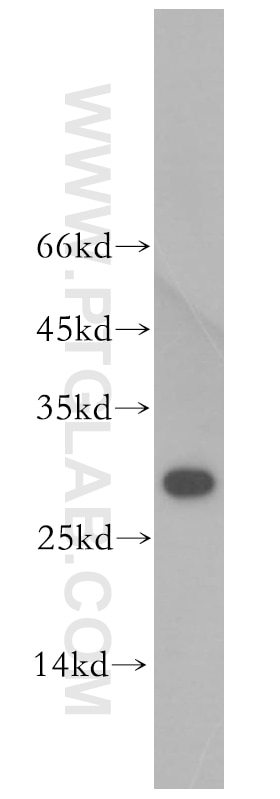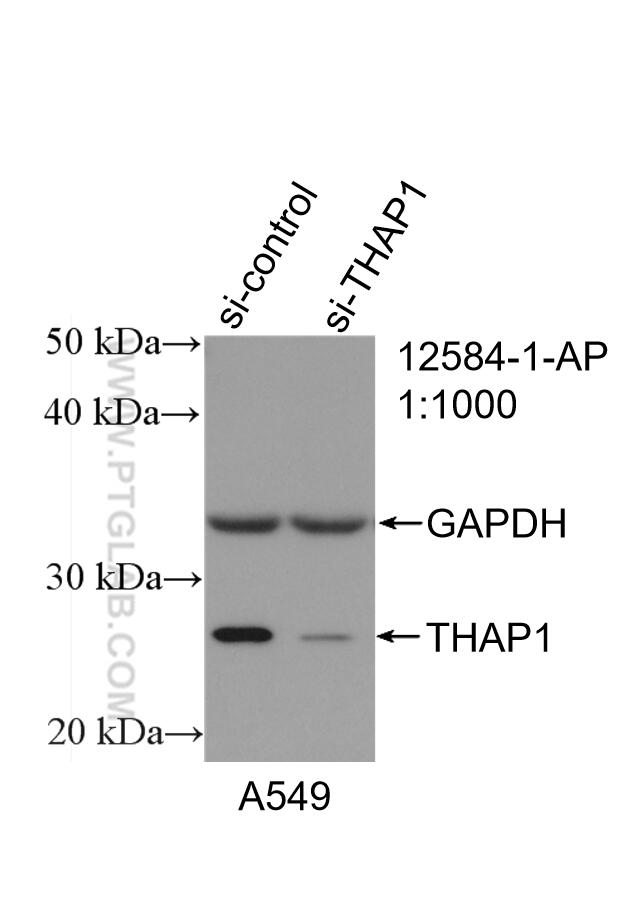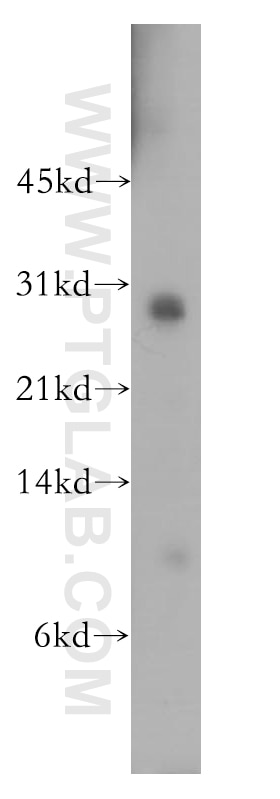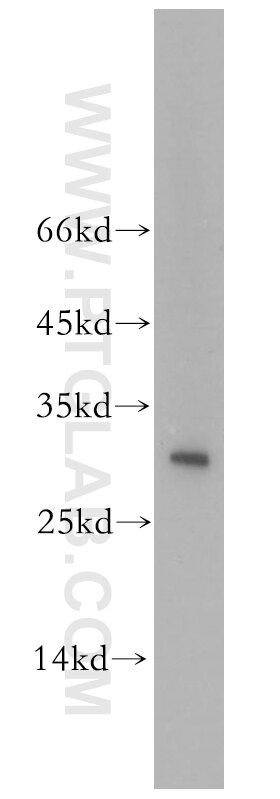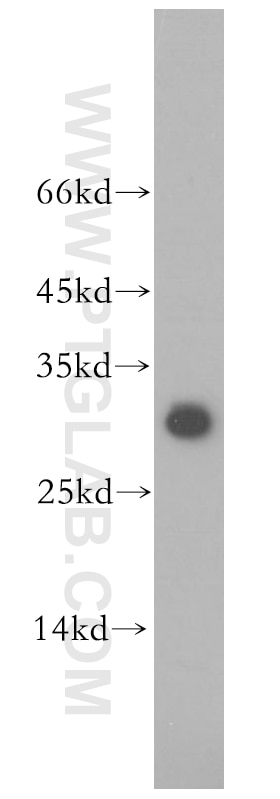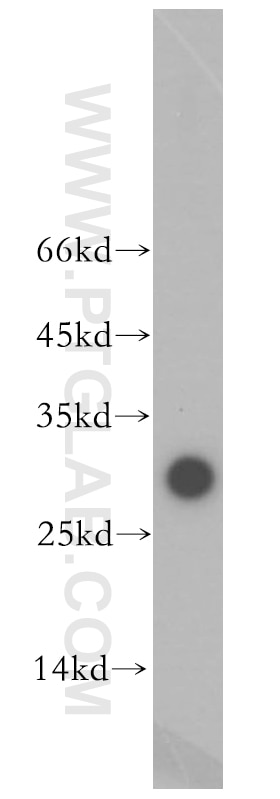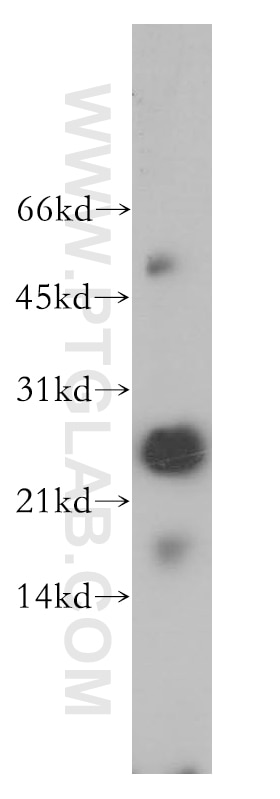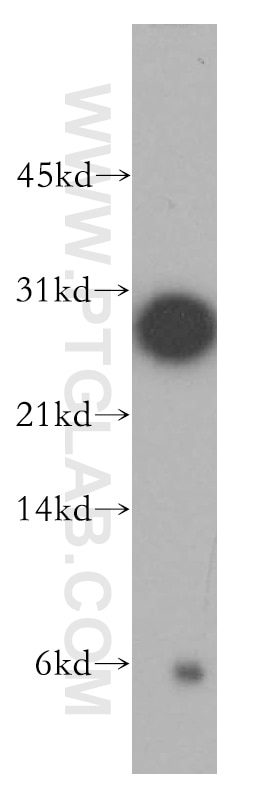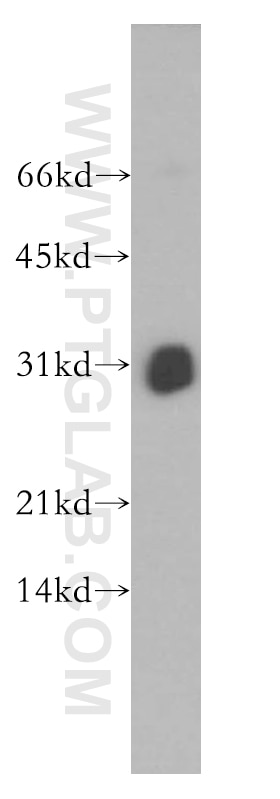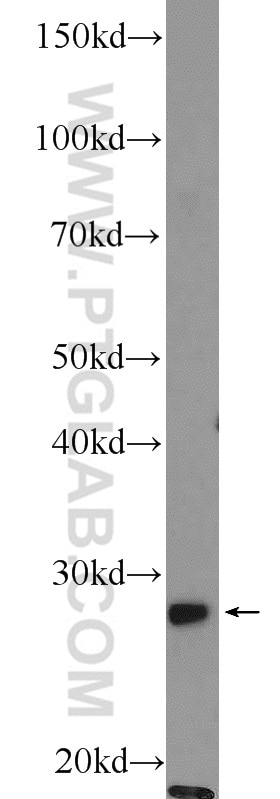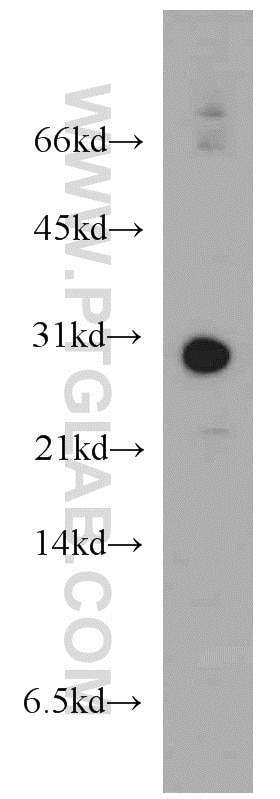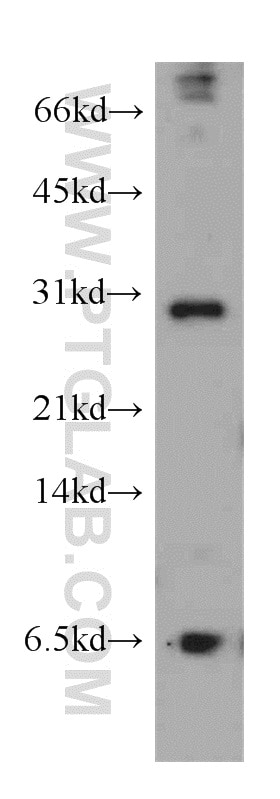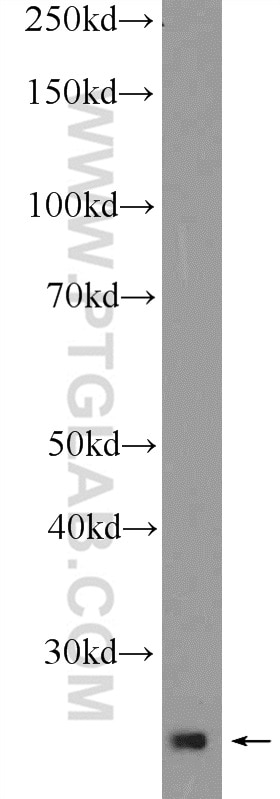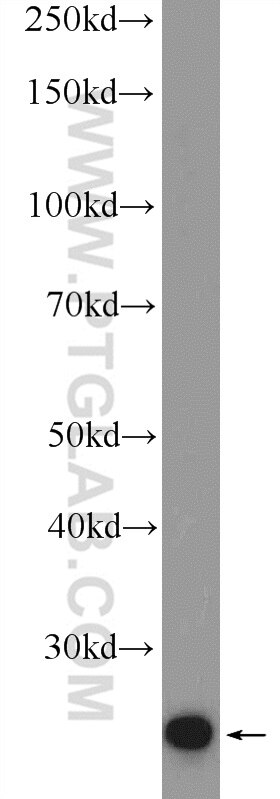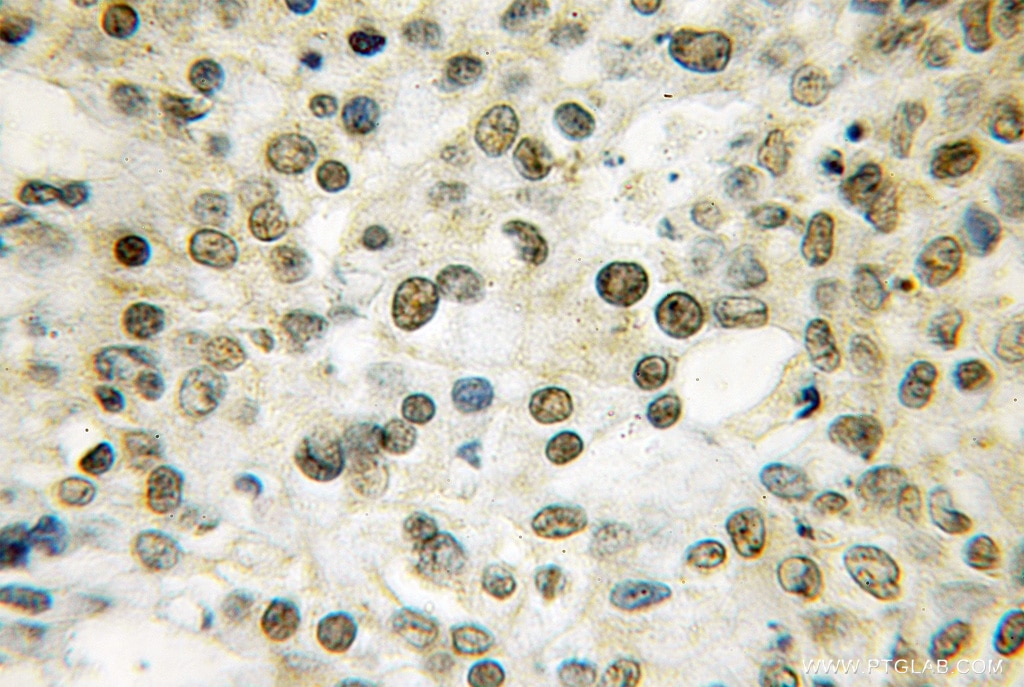- Featured Product
- KD/KO Validated
THAP1 Polyklonaler Antikörper
THAP1 Polyklonal Antikörper für WB, IHC, ELISA
Wirt / Isotyp
Kaninchen / IgG
Getestete Reaktivität
human, Maus, Ratte
Anwendung
WB, IHC, ChIP, ELISA
Konjugation
Unkonjugiert
Kat-Nr. : 12584-1-AP
Synonyme
Galerie der Validierungsdaten
Geprüfte Anwendungen
| Erfolgreiche Detektion in WB | HepG2-Zellen, A375-Zellen, HEK-293-Zellen, HeLa-Zellen, humanes Herzgewebe, humanes Hirngewebe, Mausherzgewebe, Maushirngewebe, SGC-7901-Zellen |
| Erfolgreiche Detektion in IHC | humanes Kolonkarzinomgewebe Hinweis: Antigendemaskierung mit TE-Puffer pH 9,0 empfohlen. (*) Wahlweise kann die Antigendemaskierung auch mit Citratpuffer pH 6,0 erfolgen. |
Empfohlene Verdünnung
| Anwendung | Verdünnung |
|---|---|
| Western Blot (WB) | WB : 1:500-1:1000 |
| Immunhistochemie (IHC) | IHC : 1:20-1:200 |
| It is recommended that this reagent should be titrated in each testing system to obtain optimal results. | |
| Sample-dependent, check data in validation data gallery | |
Veröffentlichte Anwendungen
| KD/KO | See 5 publications below |
| WB | See 11 publications below |
| IHC | See 1 publications below |
| ChIP | See 1 publications below |
Produktinformation
12584-1-AP bindet in WB, IHC, ChIP, ELISA THAP1 und zeigt Reaktivität mit human, Maus, Ratten
| Getestete Reaktivität | human, Maus, Ratte |
| In Publikationen genannte Reaktivität | human, Maus, Ratte |
| Wirt / Isotyp | Kaninchen / IgG |
| Klonalität | Polyklonal |
| Typ | Antikörper |
| Immunogen | THAP1 fusion protein Ag3285 |
| Vollständiger Name | THAP domain containing, apoptosis associated protein 1 |
| Berechnetes Molekulargewicht | 213 aa, 25 kDa |
| Beobachtetes Molekulargewicht | 25-30 kDa |
| GenBank-Zugangsnummer | BC021721 |
| Gene symbol | THAP1 |
| Gene ID (NCBI) | 55145 |
| Konjugation | Unkonjugiert |
| Form | Liquid |
| Reinigungsmethode | Antigen-Affinitätsreinigung |
| Lagerungspuffer | PBS mit 0.02% Natriumazid und 50% Glycerin pH 7.3. |
| Lagerungsbedingungen | Bei -20°C lagern. Nach dem Versand ein Jahr lang stabil Aliquotieren ist bei -20oC Lagerung nicht notwendig. 20ul Größen enthalten 0,1% BSA. |
Hintergrundinformationen
THAP1 belongs to the THAP1 family. It is a DNA-binding transcription regulator that regulates endothelial cell proliferation and G1/S cell-cycle progression. THAP1 may also have pro-apoptopic activity by potentiating both serum-withdrawal and TNF-induced apoptosis. Mutations in THAP1 have been associated with dystonia 6. THAP1 encodes a transcription factor with mostly unknown targets. It regulates the expression of DYT1 (TOR1A), another dystonia-causing gene. After characterization of the TOR1A promoter, THAP1 binds to the core promoter of TOR1A. Wild type THAP1 represses the expression of TOR1A, whereas dystonia 6-associated mutant THAP1 results in decreased repression of TOR1A. Catalog#12584-1-AP is a rabbit polyclonal antibody raised against full-length of huamn THAP1.
Protokolle
| Produktspezifische Protokolle | |
|---|---|
| WB protocol for THAP1 antibody 12584-1-AP | Protokoll herunterladen |
| IHC protocol for THAP1 antibody 12584-1-AP | Protokoll herunterladen |
| Standard-Protokolle | |
|---|---|
| Klicken Sie hier, um unsere Standardprotokolle anzuzeigen |
Publikationen
| Species | Application | Title |
|---|---|---|
Nat Genet Mutations in the histone methyltransferase gene KMT2B cause complex early-onset dystonia. | ||
Mol Cell The dystonia gene THAP1 controls DNA double-strand break repair choice.
| ||
Brain DYT6 mutated THAP1 is a cell type dependent regulator of the SP1 family.
| ||
Dev Cell The DYT6 Dystonia Protein THAP1 Regulates Myelination within the Oligodendrocyte Lineage. |
